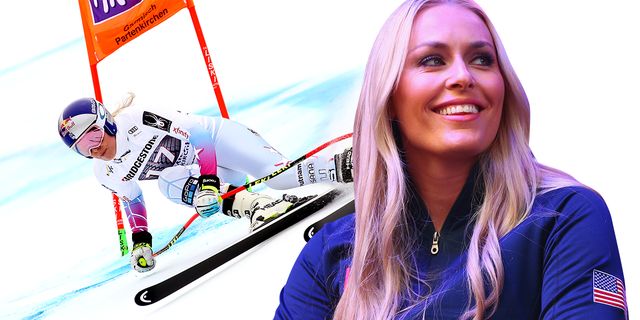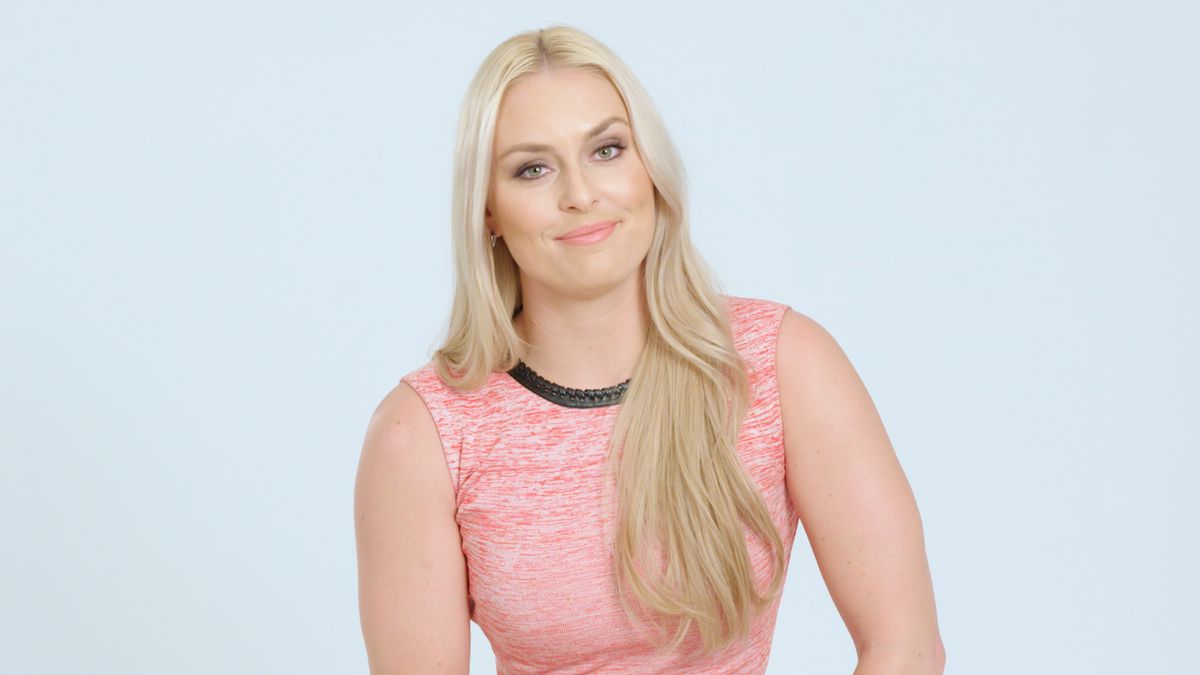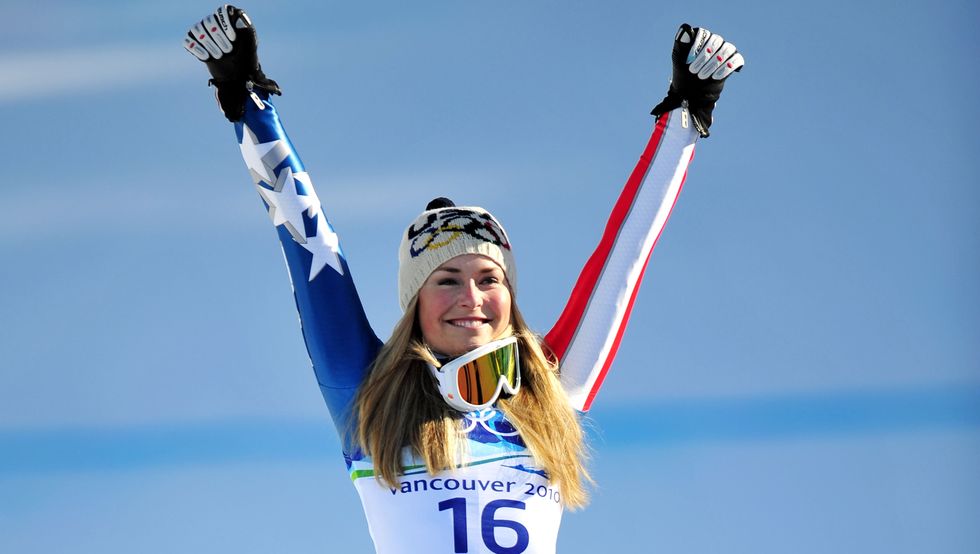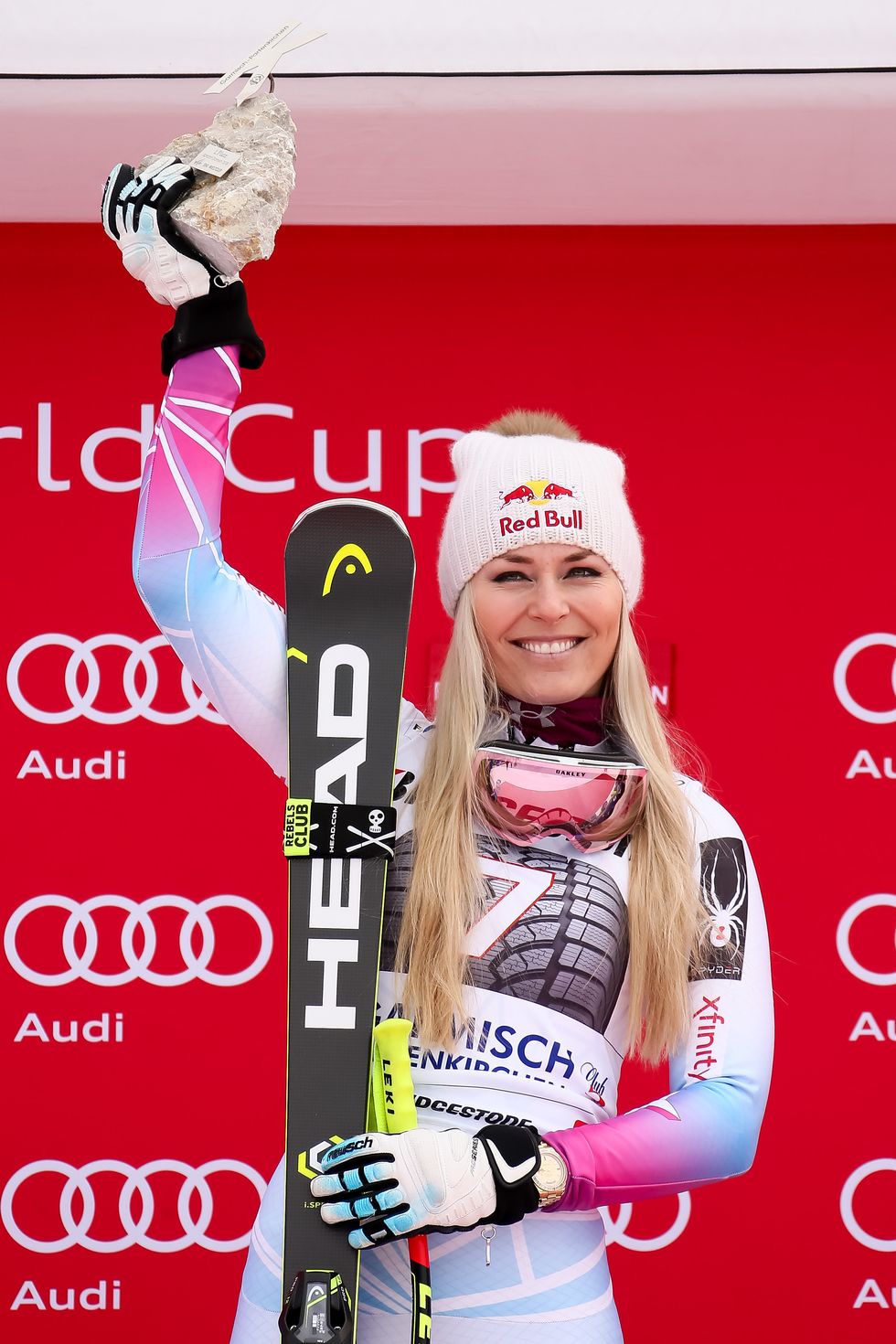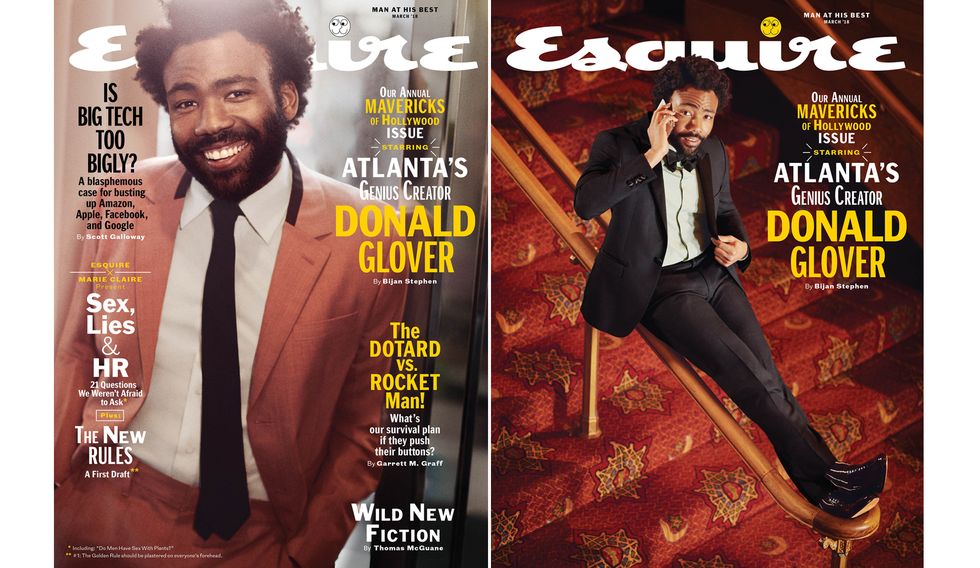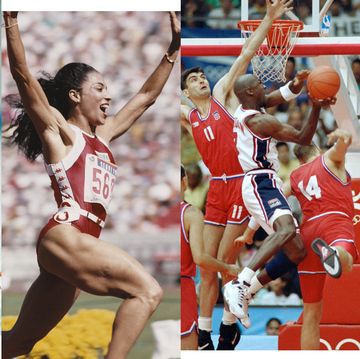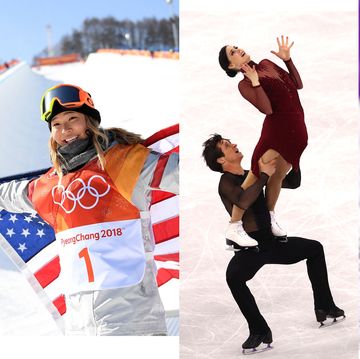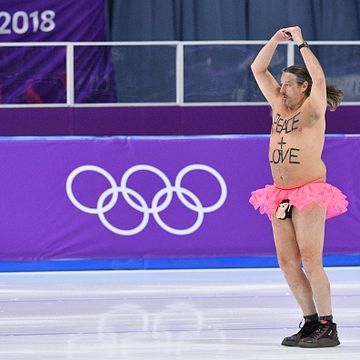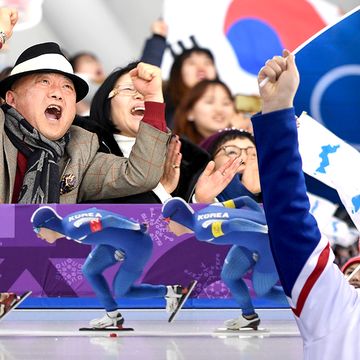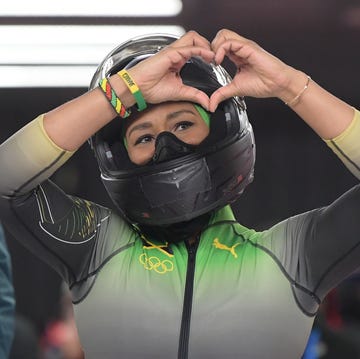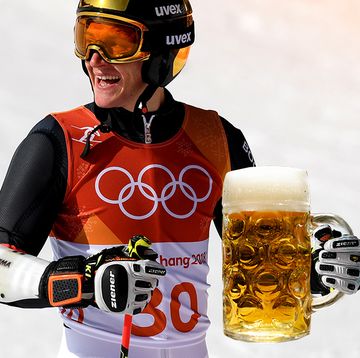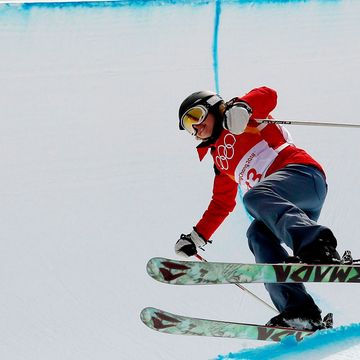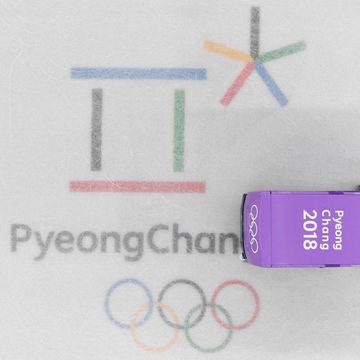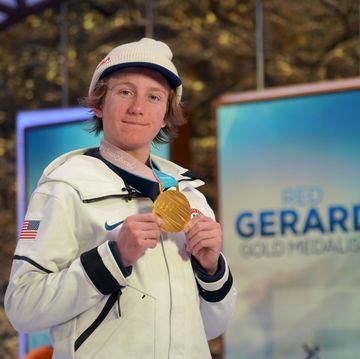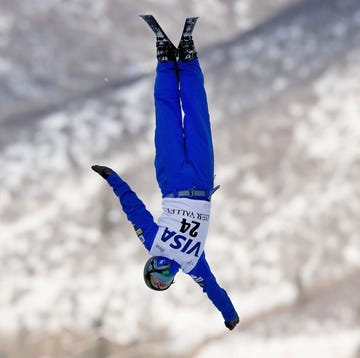Lindsey Vonn has won eighty-one World Cups in alpine ski racing—that’s the all-time record for women. In 2010, she became the first American woman to earn an Olympic gold medal in downhill skiing. She’s one of just two women ever to win four overall World Cup championships and one of six to win races in all five alpine disciplines. As a psychologist who studies motivation and meaning, I wanted to know what fuels her.
Adam Grant: What did it feel like when you won at the Olympics?
Lindsey Vonn: It was really emotional, which I rarely am. As I’ve gotten older, I’ve gotten maybe a little bit more emotional, but at the [2010] Olympics, that was the first time I really cried in the finish. Even if you do take the time to savor it, it goes by so fast. You may be successful one day, but you can be replaced the next. It’s a difficult reality to face.
AG: You’ve achieved everything that an athlete could ever dream of. Why do you still do it?
LV: Because I love it. I love going fast. I love competing. I love the adrenaline and taking risks. I think that’s missing a lot in sports. A lot of time, on the professional level, people just do it to get money—and I’m exactly the opposite. All I want to do is ski fast.
AG: Once upon a time, I was a springboard diver. I never got anywhere near the level of excellence you’ve achieved, but I lost some of my intrinsic motivation as I pursued goals of making the state finals and qualifying for the Junior Olympic nationals. How have you maintained your love of the sport with so many competitive pressures?
LV: Competition is what I find joy in as well. I like pushing myself. I like setting those goals. I like knowing that I’ve executed the plan I have set forth. All those things feel good. I don’t mind the mistakes. Failures are new challenges—they make me more excited to go back out there because I did something wrong and I know I can fix it.
AG: Who are you racing for?
LV: Myself. My grandpa passed away recently, so I think for the [2018] Olympics, I’ll be racing mostly for him, but I’ve always been very driven. I had a lot of good coaches, but it was always me who wanted to be here. I was always the one trying to race more and make the Olympics. I was always the one who was skiing for myself.
AG: You’ve said that other people had questioned whether you could excel without a man by your side. It never would have even dawned on me that that would come up. Why do you think it did, and how did you respond?
LV: It was written in one of the second- or third-largest newspapers in the country, and I’m not sure why that particular journalist chose to write something like that, but it deeply offended me. I still actually use it as motivation, because it doesn’t matter who your coach is or who helped you along the way—it’s still you at the starting gate. I know a lot of times with other athletes, they like to say, “Oh, the Williams sisters had their father as their coach,” but in the end, they’re still the ones competing. Not the parents.
AG: Now there are rumors about you racing against men in the World Cup this year. Is that going to happen?
LV: I really hope so. I wish that I would have been able to get this accomplished five years ago, when I was in my prime. I’m really trying to convince some of these men in the International Ski Federation that it’s a good idea. But in the end it’s their decision, so there’s only so much I can do.
I think outside of my ambition it’s something similar to what Billie Jean King did when she agreed to an exhibition match against Bobby Riggs. As women, we need to respect each other and support each other, and I think that men need to see us more as equals even though physically we may not be as strong as them. I think it’s a positive example to set for the next generation of girls—trying to break the glass ceiling and understanding that anything is possible.
AG: Who are your role models?
LV: Early in my career, it was Picabo Street. She inspired me to want to be an Olympian. Now one of my biggest inspirations is Roger Federer. He’s classy. There’s an elegance in the way he plays. He’s always a true champion. Always humble. Always respectful. Nice to everyone. Most professional athletes these days are not humble. Roger started a foundation and he’s very philanthropic. I try to emulate him as much as I can and be a good role model.
AG: What are your recommendations for building grit?
LV: It’s important to have a long-term goal, but then you also need a monthly goal, a weekly goal, a daily goal. You need to be able to make small steps in order to get to the big ones. It’s something that I’ve always done. I set ten-year goals when I was nine, so I’m a little bit weird, but I never feel like any goal is unattainable. I look at it from a logical point of view as to how I can get there. I read Angela Duckworth’s book about grit. I really want to work with her and find a way to teach kids from my foundation how to be gritty. My grandfather was extremely gritty; my father was very gritty; and I just kind of learned as a kid that there are no excuses. You put your head down and you work. You don’t complain. Get the job done and keep working until the job is done right. I think that’s a reason why I’ve been so good at coming back from injury. The last five years have sucked, but I stay on top. I think the grittiness is what really kept me there because I wasn’t satisfied with being number one. I wanted to keep working harder.
AG: Last year, Sheryl Sandberg and I published a book on resilience. We wanted to figure out how you find a way forward when Option A is off the table and you’re stuck with Option B. That’s been the story of your career, with different kinds of setbacks and injuries, and I’m curious about how you find strength in the face of adversity.
LV: If A is off the table, then B is my only option, so I choose B. I’m not the person who is like, “Oh, I’m injured. I’m going to give up.” I make a new plan. Nothing in life is easy. Whenever you have a setback, get yourself back up as quick as you can and get on the right track. Having my dogs really helps, as do good friends and ski racing. They give me that goal to look forward to. Instead of staying in bed all day, I have to get up. I don’t really have a choice. I have to feed the dogs. I have to work out, and as soon as I work out, I feel better. As long as I can get up, I can get going and feel better, but the first step is always the hardest.
AG: Do you have a recovery routine?
LV: I just get the prognosis from the doctors and then I make a plan right away. How many weeks or months until I can start training hard? How many months until I can start skiing? I then set a goal for when I want to be back, and then I work backward from there.
I’m very diligent about my rehab, and a lot of times those estimates are based on people who are doing therapy five times a week or once a day, and I’m doing therapy seven days a week, twice a day at least. Normally, with the right rehab, with the right physical therapist and commitment, you can come back sooner. Obviously every injury is different and I can’t say the same for everyone, but from my experience, I’ve always been able to come back earlier than the doctors expected. They all think I’m a little bit crazy, but it’s got me back on the slopes to continue to be fast and win more World Cups.
AG: What’s the worst advice you’ve been given?
LV: Try to be like someone else. Try to change your form to be like someone else. Everyone is unique. Everyone has different capabilities, and it’s about making your style the best it can be and not trying to conform. Everyone was trying to change the way I was skiing, and my coach in Minnesota said, “You’re fast the way you are. Don’t ever change.” He was right, and I didn’t. It’s one of the things that’s made me fast throughout my career, just the way I naturally ski.
This interview appears in the March '18 issue of Esquire.
